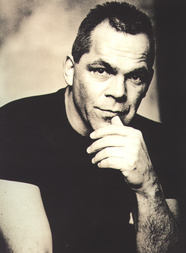

Certainly not them, they thought they were making something great! The insiders simultaneously want to enjoy the cultural clout and authority that comes from being the one who created the like button, while also wanting to escape any accountability for being the person who created the like button. One of the fascinating things about The Social Dilemma is that in one scene a person will proudly note that they are responsible for creating a certain thing, and then in the next scene they will say that nobody is really to blame for that thing.
#Noizio 1.6 code
(Here's Sara's referral code link if you're thinking of signing up).Īn excellent dissection of The Social Dilemma, a programme on Netflix that I've not been particularly interested in watching, partly because I'm fairly aware of how badly we've messed up our privacy, but also correct, it would seem, I avoided because of the self rewarding Silicon Valley boys claiming "I meant well" whilst carrying on similarly badly thought out paths. Sara recommends Brain.fm which thus far is actually very nice. it's always there) - but a funky track can sometimes be distracting and I've used Noisli (similar to Noizio that Sara mentions) for relaxation sounds, but it's not quite "in the zone music". Since as far back as I can remember, I've intentionally listened to music more often than not listening to music (i.e. The other item that jumped in Sara's post was the note on music. I've got an IKEA Bekant desk with a custom hack " Megadesk" - so switching to the predefined sit/stand positions is simple for me. Now that I've got words to go with this process, I'm intentionally switching from standing to sitting depending on the type of work I'm doing. I've realised I have exactly the same approach I just hadn't articulated it. I’ve found that I like to create standing, and consume sitting.

Generally I have a similar process to my day to day work, but two things that specifically stood out for me. Sara Soueidan's post on what keeps her focused is a great read (even if I did miss it being posted over a month ago). It was about sharing, community, learning and finding a place in the world. I will concede that I don't tend to read the "got rich by selling X web start up" - but it's that start in the web that's what drives me, and what I love about the web. The stories I've read were never about making money but instead creating a place for others. Which is fine, the world runs on capitalism for the most part, it's just not entirely for me.Īnd I think that's the rub, the stories I know of the creation and the spread of the web (and indeed the internet) came from those wanting to share and do good. The notes go on and I come away with the same general sense that I've had so far of the crowd cheering on for Web3: it's about making money. Who could argue with those feelings? Not me. I mean that in a good way! I think Web3 has resonated powerfully with young people because it feels like something genuinely new, and it feels like it can be theirs. I think this might be one of the first balanced or non-invested reads of what "Web3" means and Sloan's opening notes really resonate:


 0 kommentar(er)
0 kommentar(er)
